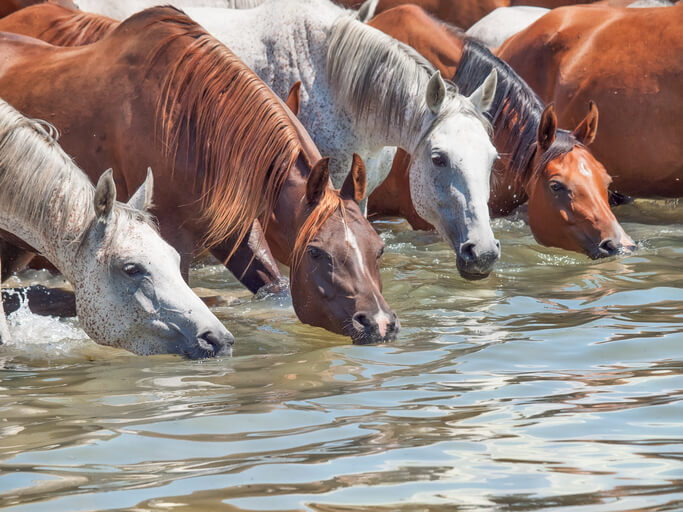HOW MUCH WATER DOES YOUR HORSE REALLY NEED?
With the temperatures dropping in the evenings and waking up to the chill of those familiar fall mornings, it can only mean one thing. Winter will soon be upon us.
With the cold winter months ahead, it’s important to think about all the things your horse will need to stay healthy through those cold temperatures. The one thing that should come to mind is how much water your horse needs to drink to stay hydrated through the winter months.
You may be surprised to know that your horse requires the same amount of water per day in the winter as they do in the summer to maintain hydration.
An 1100 lb horse needs about 10 gallons of water per day to ensure proper hydration and minimize digestion upsets.
Typically, horses have more digestive concerns during the winter months than during any other time of year. Probably because their bodies slow down due to the cold and is also because of a decrease in water intake. The decrease in water intake could be caused by a lack of supply, frozen water, cold water, or just not enough water being provided to them.
During the summer months, your horses’ water intake is greater for many reasons. The also get about 75% of their water intake from the grasses that they eat. During the winter, your horse still requires at least 10 gallons of water, but is now relying on you to supply it. Be aware that older horses and those with dental issues may not drink very cold water because of the discomfort it causes their teeth, again adding to the problem of insufficient water intake.
The question then becomes, how do we ensure our horses are drinking enough water to meet their needs during the winter? The use of an electrolyte to encourage horses to drink more may be an option. Other ideas include ensuring the horse has access to water at all times, use heaters in water troughs where freezing is an issue and check the water supply daily. Also, make yourself aware of the symptoms of a dehydrated horse and keep a close eye on them throughout the winter.
For more information about caring for your horse in the winter months, check out our past blogs:
https://www.hoof-it.com/blogs/hoof-it/blanketing-your-horse
https://www.hoof-it.com/blogs/hoof-it/horse_winter
https://www.hoof-it.com/blogs/hoof-it/does-your-horse-really-need-a-shelter

